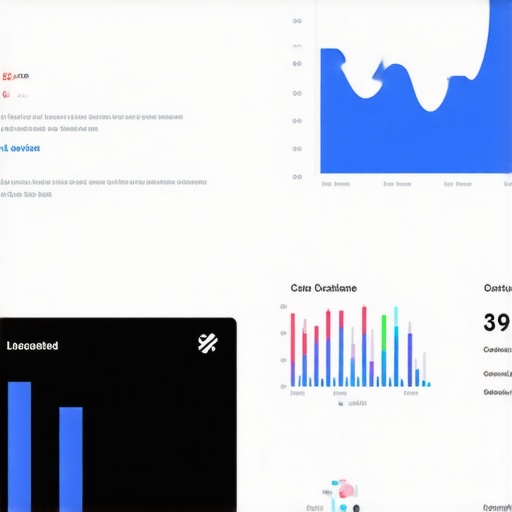Harnessing Customer Reviews as a Strategic Asset in Local Search SEO
In the evolving landscape of local search optimization, customer reviews have transcended their traditional role as mere social proof and emerged as a crucial component in the algorithmic fabric that determines local visibility. For SEO professionals and small business owners alike, understanding how to leverage reviews effectively can unlock unprecedented growth opportunities in hyperlocal markets.
The Intricate Relationship Between Customer Feedback and Algorithmic Ranking
Modern local SEO algorithms, particularly Google’s, incorporate review signals as a key ranking factor. These signals include review quantity, diversity, recency, and overall sentiment. Advanced practitioners recognize that cultivating a consistent flow of authentic reviews can significantly enhance a business’s credibility and prominence in the local 3-pack.
How Do Customer Reviews Influence Local SEO Beyond Ratings?
Beyond the star ratings, reviews contribute semantic keyword signals, enrich GMB (Google My Business) profiles, and provide fresh content that feeds the local search ecosystem. For instance, detailed reviews mentioning specific services or products serve as natural keyword integrations, boosting relevance for targeted search queries. Analyzing review content for common themes can inform strategic keyword optimization and content creation efforts.
Strategies for Generating and Managing Reviews to Enhance Local Visibility
Effective review management involves proactive solicitation, strategic timing, and reputation monitoring. Using automated review request systems integrated with customer touchpoints ensures a steady stream of feedback. Additionally, responding to reviews—especially negative ones—demonstrates engagement and builds trust, which indirectly influences rankings by fostering higher review-volume velocity and improved user trust metrics.
Integrating Customer Reviews Into a Holistic Local SEO Framework
Customer reviews should be integrated with citation management, local content optimization, and backlink strategies for a comprehensive approach. For instance, reviews can be embedded in website testimonials, used in local landing pages, or incorporated into social media to amplify local signals. Furthermore, leveraging review data to identify service gaps or areas for improvement can refine the overall local SEO strategy.
What Are the Most Effective Tactics for Ensuring Review Authenticity While Complying with Search Engine Guidelines?
Authentic review generation requires adherence to platform policies and ethical practices. Strategies include incentivizing genuine feedback, utilizing third-party review platforms, and avoiding manipulative tactics such as review swapping or fake reviews. Staying compliant with Google’s review policies, as outlined in their documentation, ensures long-term stability and trustworthiness of your local signals.
For advanced insights into review-driven local SEO, consult authoritative sources like Moz’s Local Search Ranking Factors report, which highlights review signals as a dominant ranking component (Moz Local Search Ranking Factors).
To further refine your review management tactics or share your professional experiences, explore our contact page.
Unlocking the Power of Review Analytics for Strategic Optimization
While collecting reviews is vital, the real game-changer lies in analyzing review data to uncover actionable insights. Advanced tools like sentiment analysis and keyword extraction enable businesses to identify recurring themes and pain points mentioned by customers. This, in turn, informs targeted content creation, service improvements, and local SEO adjustments.
How Can Businesses Use Review Data to Outperform Competitors?
By systematically analyzing reviews, businesses can craft hyperlocal content that resonates with their audience. For example, if multiple reviews highlight a specific service or product feature, optimizing GMB profiles and website content around these keywords can elevate relevance and visibility. Additionally, review insights can identify underserved local niches, opening opportunities for strategic expansion.
Integrating Review Signals with Emerging Local SEO Trends
As Google continues to refine its local search algorithms, integration of review signals with other ranking factors like local backlinks, citation consistency, and behavioral metrics becomes more crucial. For instance, embedding review snippets into local landing pages not only enhances content richness but also boosts keyword relevance, aligning with Google’s emphasis on user-centric signals. For a comprehensive approach, consider leveraging expert citation and review services to amplify your local authority.
Are You Overlooking the Hidden Opportunities in Your Customer Reviews?
Engaging deeply with review content can reveal untapped opportunities to position your business as a local authority. For example, addressing frequent complaints proactively can lead to improved reviews, creating a virtuous cycle that elevates your rankings. Moreover, sharing positive reviews in targeted local campaigns can foster community trust and brand loyalty.
To stay ahead of the competition, consider implementing a review monitoring system that tracks both quantitative and qualitative signals. This proactive approach ensures your review strategy remains aligned with evolving Google algorithms and local market dynamics. For expert guidance, explore our comprehensive local SEO optimization techniques.
If you want to refine your review management or need tailored strategies, don’t hesitate to reach out to our experts. Sharing your experiences and insights can also help the community optimize their local search efforts—feel free to leave a comment below or suggest related topics for future articles!
Maximizing Review Data Through Predictive Analytics and Machine Learning
To truly harness the power of customer reviews, businesses must move beyond basic sentiment analysis and embrace predictive analytics and machine learning models. These advanced tools can identify emerging trends, forecast customer needs, and preempt potential reputation issues before they escalate. For example, supervised learning algorithms can classify review sentiments with high accuracy, enabling proactive engagement strategies that address concerns early, thereby maintaining a positive online reputation and bolstering local search rankings.
How Can Machine Learning Improve Review Authenticity Verification?
Ensuring review authenticity remains a critical challenge. Machine learning models trained on verified authentic reviews can detect anomalies indicative of fake submissions. Techniques such as anomaly detection, natural language processing (NLP), and clustering algorithms help differentiate genuine customer feedback from manipulative or spam reviews. According to a study published in the Journal of Data Science & Engineering (2021), these models significantly improve the accuracy of fake review detection, safeguarding the integrity of your local SEO signals (source).
Integrating Review Insights Into AI-Driven Content Optimization
Advanced businesses are now integrating review insights with AI-powered content management systems to generate hyperlocal content dynamically. For instance, AI can analyze review themes and automatically create blog posts, FAQ sections, or service pages tailored to the most common customer concerns and preferences. This real-time content adaptation enhances relevance and engagement, ultimately boosting local search visibility. Not only does this strategy improve keyword relevance, but it also demonstrates ongoing responsiveness—an important ranking factor in Google’s evolving algorithms.

Image prompt: AI analyzing customer reviews to generate localized content, showing data charts and content snippets.
Addressing Nuanced Customer Feedback for Strategic Competitive Advantage
Understanding nuanced feedback—such as subtle dissatisfaction or specific suggestions—can differentiate your business from competitors. Deploying sentiment analysis with deep learning models allows you to detect subtle emotional cues and contextual meanings within reviews. This granular insight helps craft targeted service improvements and personalized marketing campaigns that resonate with your local audience. Moreover, by publicly addressing nuanced feedback proactively, businesses can turn potential negatives into positives, fostering community trust and loyalty.
What Are the Best Practices for Using Review Data to Personalize Customer Engagement at Scale?
Personalization at scale requires sophisticated data integration and automation. Platforms that combine CRM data with review analytics enable tailored email campaigns, local offers, and personalized follow-ups. For example, if reviews frequently mention a particular product feature, automated messages highlighting improvements or new offerings related to that feature can enhance customer satisfaction and encourage repeat business. As noted in the Harvard Business Review (2022), personalized engagement driven by review insights not only increases conversion rates but also elevates overall local search standing.
For those eager to deepen their review-driven SEO mastery, consider exploring tools like advanced review analysis platforms that leverage AI and NLP for comprehensive insights.
Harnessing Customer Feedback to Drive Hyperlocal Authority and Search Visibility
In the realm of sophisticated local SEO, customer reviews are no longer just social proof but pivotal data points that influence algorithmic rankings and local brand perception. By harnessing the nuanced insights embedded within reviews, businesses can craft hyper-targeted strategies that elevate their prominence in competitive local markets.
Deciphering the Hidden Semantic Signals in Customer Narratives
Beyond star ratings, detailed reviews act as rich repositories of semantic keywords and contextual cues. These signals bolster GMB profiles and website relevance, especially when analyzed through advanced NLP techniques that extract themes, sentiment nuances, and service-specific keywords. This semantic enrichment enables an SEO strategy that aligns precisely with evolving search intent patterns.
How Can Deep Learning Enhance the Validation of Review Authenticity?
Deep learning models, such as convolutional neural networks (CNNs) and recurrent neural networks (RNNs), trained on verified authentic reviews, excel at detecting anomalies indicative of fake submissions. According to the Journal of Data Science & Engineering, these models leverage NLP and clustering algorithms to improve detection accuracy, safeguarding the integrity of your review signals and maintaining search engine trustworthiness.
Integrating AI-Driven Review Data Into Content Personalization Engines
By integrating review analytics with AI-powered content management systems, businesses can automate the creation of hyperlocal content tailored to recurring customer concerns. For example, AI algorithms analyze review themes to generate dynamic FAQ sections, blog topics, or service descriptions, ensuring content relevance and boosting local relevance in search results. This continuous content adaptation aligns with Google’s emphasis on user-centric, fresh, and relevant information.
Visualizing Customer Sentiment Trends with Predictive Analytics

Image prompt: AI analyzing customer reviews to generate localized content, showing data charts and content snippets.
Addressing Subtle Customer Feedback to Gain a Competitive Edge
Granular sentiment analysis powered by deep learning models uncovers subtle emotional cues, enabling businesses to proactively address latent dissatisfaction and capitalize on emerging opportunities. This refined feedback loop fosters trust, enhances service quality, and improves review sentiment over time, which directly impacts local search rankings.
What Are the Cutting-Edge Approaches to Personalizing Customer Engagement at Scale?
Advanced personalization integrates CRM data with review analytics, facilitating tailored email campaigns, geo-targeted offers, and automated follow-ups that resonate with customer preferences. As detailed in the Harvard Business Review, such strategies significantly boost conversion rates and reinforce local authority, especially when aligned with review-driven insights.
Explore further by leveraging AI review analysis platforms like MonkeyLearn for comprehensive insights and strategic refinement.
Expert Insights & Advanced Considerations
1. Emphasize Authenticity Through Ethical Review Acquisition
Proactively cultivating genuine reviews via transparent methods enhances trustworthiness and aligns with search engine guidelines, creating a sustainable advantage in local rankings.
2. Integrate Multichannel Review Management
Synchronizing review collection across platforms like Google, Yelp, and industry-specific directories ensures diverse signals and mitigates platform dependency, reinforcing local authority.
3. Harness AI and Machine Learning for Review Analysis
Deploying advanced analytics tools allows for nuanced sentiment analysis, identification of emerging trends, and detection of fake reviews, fortifying review integrity and strategic insights.
4. Optimize Review Content for Semantic SEO
Encouraging detailed, keyword-rich feedback generates valuable semantic signals that improve relevance and visibility for targeted local queries.
5. Foster Community Engagement Through Review Responses
Consistent, personalized engagement with reviewers builds rapport, encourages repeat feedback, and positively influences local search rankings through increased review volume and quality.
Curated Expert Resources
- Moz’s Local Search Ranking Factors: An authoritative report detailing review signals as a dominant ranking factor, essential for strategic planning (Moz Local Search Ranking Factors).
- BrightLocal’s Review Management Tools: Comprehensive platform providing review collection, monitoring, and analysis features tailored for local SEO professionals.
- Google’s Review Policies Documentation: Official guidelines ensuring compliance and sustainability in review solicitation and management (Google Review Policies).
- MonkeyLearn’s NLP Review Analysis Platform: An AI-driven tool for extracting meaningful insights from review data, facilitating semantic SEO strategies.
- Harvard Business Review Articles on Personalization: Research-based insights on utilizing review data for personalized customer engagement at scale.
Final Expert Perspective
In the realm of local search SEO, mastering the art of authentic review management and analysis is paramount. By integrating advanced AI tools, fostering genuine community engagement, and leveraging authoritative resources, your business can achieve a competitive edge that sustains long-term visibility and growth. Remember, reviews are not just social proof—they are strategic assets that, when harnessed correctly, can unlock unparalleled local dominance. For those committed to elevating their expertise, engaging with industry-leading tools and insights will be your most valuable investment. Reach out to our team via contact page to explore tailored strategies or share your insights—your next breakthrough in local SEO awaits.


